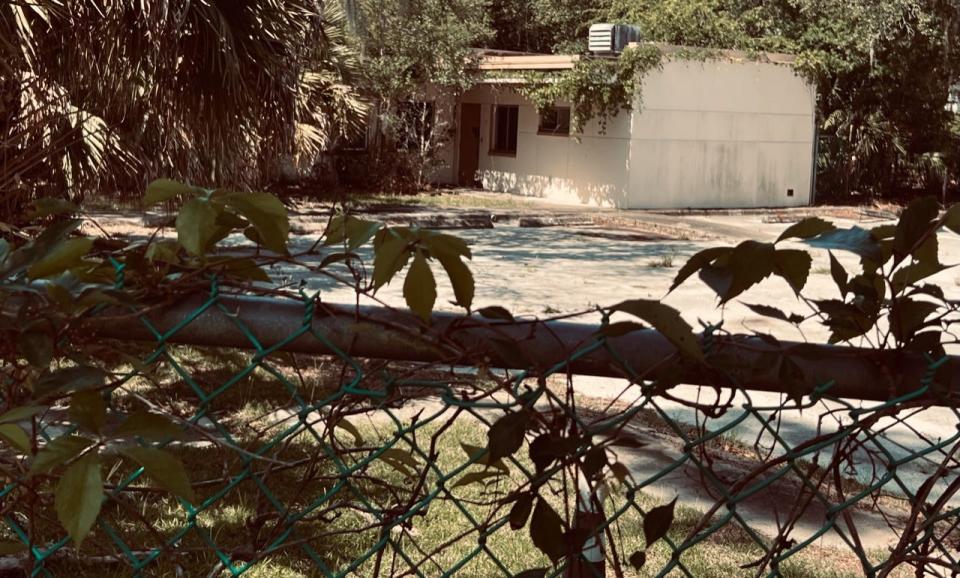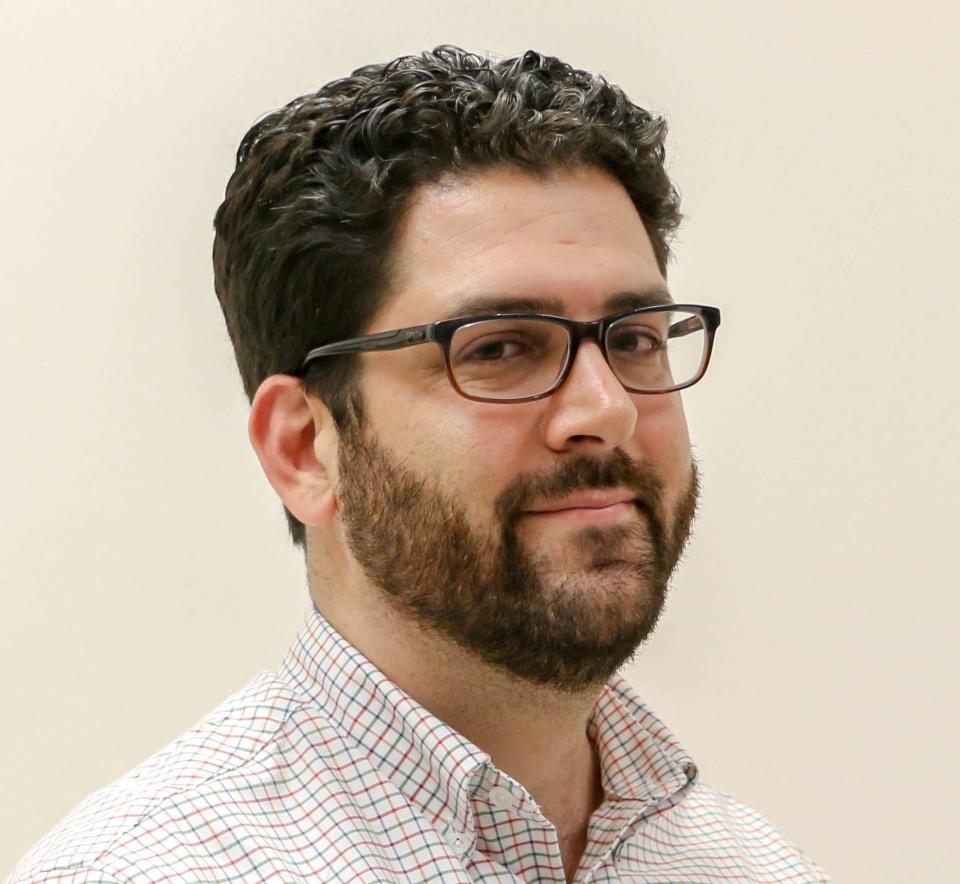Finding common ground in housing debate might be more likely after election
- Oops!Something went wrong.Please try again later.
The winners of the city races in Tuesday’s election will be rewarded with a whole lot of work, especially when it comes to housing.
Gainesville's new city commissioners and mayor will have to figure out how to help about 16,000 residents who struggle to afford housing. At the same time, thousands more people move here annually and provide additional competition for the limited affordable housing available.
“That’s going to be a heavy lift for the next commission — that problem is not going away,” said current Mayor Lauren Poe.
Poe is finishing up his second term as mayor and prevented by term limits from seeking another. But even without those limits he would have faced difficulty getting re-elected in the current political environment, after voting Aug. 4 in the 4-3 commission majority to eliminate single-family zoning citywide.

While some residents such as Jason Sanchez of Gainesville is for People praised the move, it generated much more opposition. Former UF architecture professor Kim Tanzer wrote in an opinion column last week that “the fight galvanized a large, diverse coalition” of opponents, some of whom formed the nonprofit group Gainesville Neighborhood Voices.
Continuing to fight about housing for years to come is a dispiriting prospect, so I contacted members of both groups to try to identify common ground. Tanzer sent a long list of ideas, some of which involve a preliminary plan presented last month by city of Gainesville Senior Housing Strategist Corey Harris on spending $8 million in federal American Rescue Plan Act funding.
But the plan shows the limits of what that money could do. Under the proposal, $6 million would be spent on underwriting the development of new rental units for households making less than half of the area median income, which would remain affordable for at least 30 years.
So, what would be the impact of all that spending? It would only create 203 affordable housing units.
“It’s just a drop in the bucket,” Poe said.
More from Nathan Crabbe:
Consider unintended consequences when making plans for downtown Gainesville
Gainesville native Andrew Warren is the latest target of Gov. Ron DeSantis
Local groups need to work together to help Gainesville thrive
Still, the city needs to start making progress on the problem. The commission also has other funding, including $1 million dedicated to a community land trust, another plan that appears to have broad support. But Poe said the city is still working out contract details with Clearwater-based Bright Community Trust, the nonprofit selected by the commission to serve in that function for the city.
Of course, there’s a difference between people supporting the idea of spending money on housing and whether they would actually approve of affordable housing being built in their neighborhoods. One area where there seems to be some support for constructing affordable housing is the Power District, as the abandoned Gainesville Regional Utilities properties around Depot Park have been dubbed.

Plans fell apart for a national firm to develop the Power District, leading Sun columnist Ron Cunningham and others to call for a locally created approach. Tanzer wrote that the area “is long overdue for redevelopment” along with a large city-owned property south of the park, while Sanchez wrote that his group would be happy to see more money spent on public housing “in the Power District (or really anywhere in town).”
To build consensus for such a plan, the city needs to learn from mistakes made in eliminating single-family zoning. Residents resent attending meetings where their input is ignored. Getting everyone to agree on every detail is impossible, but incorporating community ideas is essential in building broad support.

In the wake of the contentious debate over zoning, generating such cooperation seems like a dream. But Tuesday’s election will mean a new mayor and three new commissioners (unless there’s a runoff in any of the races, pushing the final vote to the November election).
Poe said the housing debate might benefit from new voices.
“Maybe it needs distance from people like me,” he said. “When there are new faces on the commission, perhaps that resets the conversation.”
Nathan Crabbe is The Sun's opinion and engagement editor. Contact him at nathan.crabbe@gvillesun.com or 352-374-5075. Follow him on social media at twitter.com/nathancrabbe and facebook.com/nathancrabbe.
Join the conversation
Share your opinions by sending a letter to the editor (up to 200 words) to letters@gainesville.com. Letters must include the writer's full name and city of residence. Additional guidelines for submitting letters and longer guest columns can be found at bit.ly/sunopinionguidelines.
Journalism matters. Your support matters.
Get a digital subscription to the Gainesville Sun. Includes must-see content on Gainesville.com and Gatorsports.com, breaking news and updates on all your devices, and access to the eEdition. Visit www.gainesville.com/subscribenow to sign up.
This article originally appeared on The Gainesville Sun: Nathan Crabbe: Is agreement possible in Gainesville housing debate?

